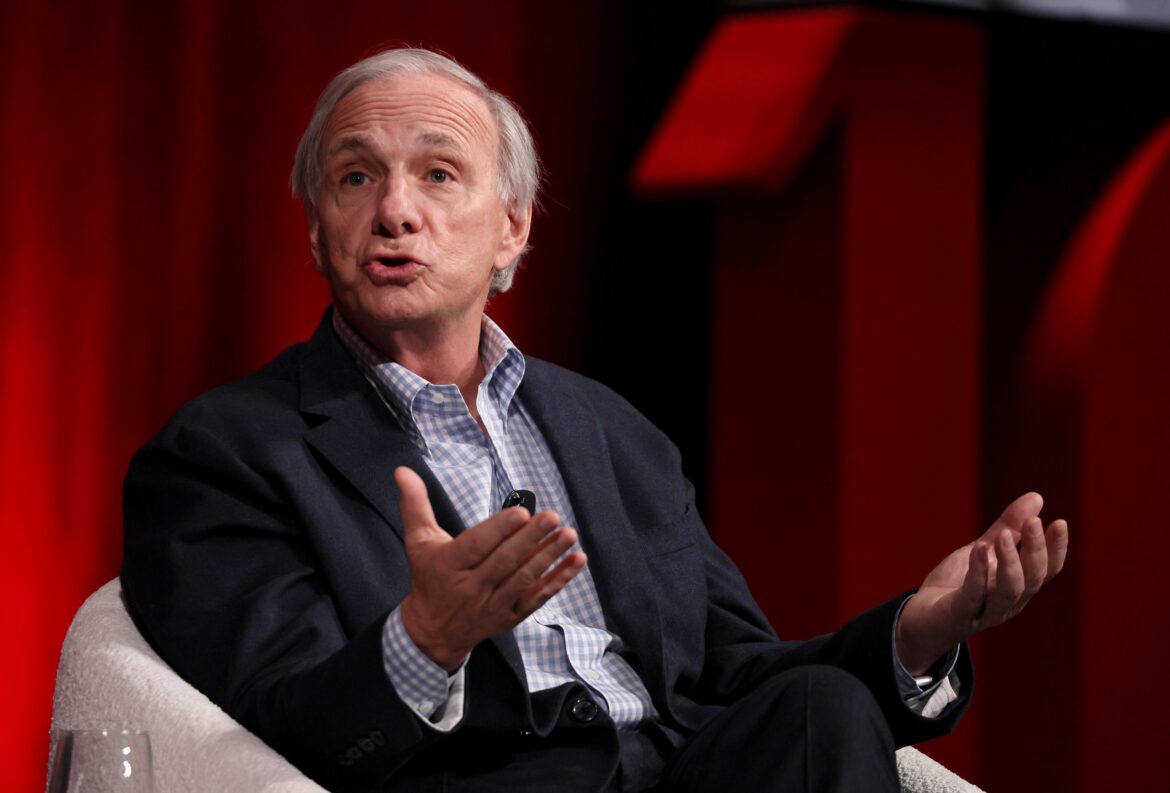Billionaire investor Ray Dalio, known for accurately predicting the 2008 financial crash, is raising alarms once again — this time, about the state of America itself.
In a candid interview with Bloomberg, the Bridgewater Associates founder warned that the U.S. is edging toward what he described as a “civil war of some sort,” driven by deep divisions in politics, economics, and society.
A Nation Caught in Multiple Wars
According to Dalio, the battles tearing at the fabric of the country aren’t just fought on the battlefield — they’re playing out in boardrooms, markets, and digital spaces.
“We’re in wars,” he said.
“There is a financial war, a technology war, geopolitical wars, and even a civil war of some sort developing in the U.S. and elsewhere.”
He emphasized that the struggle isn’t merely ideological; it’s systemic.
The billionaire painted a picture of a world entangled in overlapping crises — each one feeding off the other.
From global power struggles to technological disruption, the pressure on economic and political systems is mounting simultaneously.
The Economic Storm Brewing Beneath
Dalio didn’t hold back when discussing America’s mounting debt problem.
With federal debt nearing $38 trillion and a debt-to-income ratio around 120 percent, he warned that the government could soon struggle to meet its financial obligations.
The result, he said, could be devastating.
He described the situation as a potential “death spiral” — a vicious cycle in which rising interest costs force more borrowing, further destabilizing the economy.
“We could reach a point where sustaining essential services becomes impossible without severe cuts,” Dalio cautioned.
Lessons from History
To explain the gravity of the situation, Dalio drew a parallel to the late 1930s — a time of economic strain and social upheaval.
“If you take the most analogous period, it’s like 1937–38,” he said.
“You have debt issues, internal conflicts over wealth, and growing disorder. Democracies stopped being democracies.”
That era, he noted, marked a dangerous turning point — one where economic tension and political division fueled instability.
He believes modern America is showing the same troubling signs.
Polarization and Wealth Divide
Dalio pointed to America’s growing polarization as a central threat to its stability.
Political rivalries, he argued, are being intensified by widening gaps in wealth and opportunity.
“The internal political landscape has become worryingly polarized thanks in part to rising wealth inequality,” he explained.
This divide, according to Dalio, is eroding faith in democratic institutions and making it harder for the nation to find common ground.
A Civil War Without Guns
Though he stopped short of predicting actual armed conflict, Dalio believes the U.S. is already locked in what he called a “pseudo civil war.”
Unlike traditional wars, this one is being fought through political rhetoric, media narratives, and economic influence.
He described it as a struggle between irreconcilable factions — where institutions weaken, dialogue breaks down, and disorder seeps into governance.
“We’re in wars,” he repeated.
“A financial war, a technology war, and a civil war of some sort developing in the U.S. and elsewhere.”
The Global Ripple Effect
Dalio’s warning extends beyond America’s borders.
He argues that the same forces destabilizing the U.S. — debt, inequality, and technological upheaval — are reshaping the global order.
The rise of China, the decline of Western dominance, and the breakdown of international cooperation all point to a broader realignment.
“The forces that shape the world are all being disrupted,” Dalio observed.
“And America serves as a prime example of this shift.”
What Lies Ahead?
Ray Dalio’s message is less about predicting collapse and more about urging awareness.
The billionaire’s track record gives weight to his words — and his warning suggests that America’s challenges are not just political or economic, but existential.
As the country grapples with debt, division, and global competition, Dalio’s cautionary tone serves as both a forecast and a call to action: unless deep structural changes are made, the United States could be heading toward an era of internal conflict unlike any it has seen in modern history.
Share on Facebook «||» Share on Twitter «||» Share on Reddit «||» Share on LinkedIn
